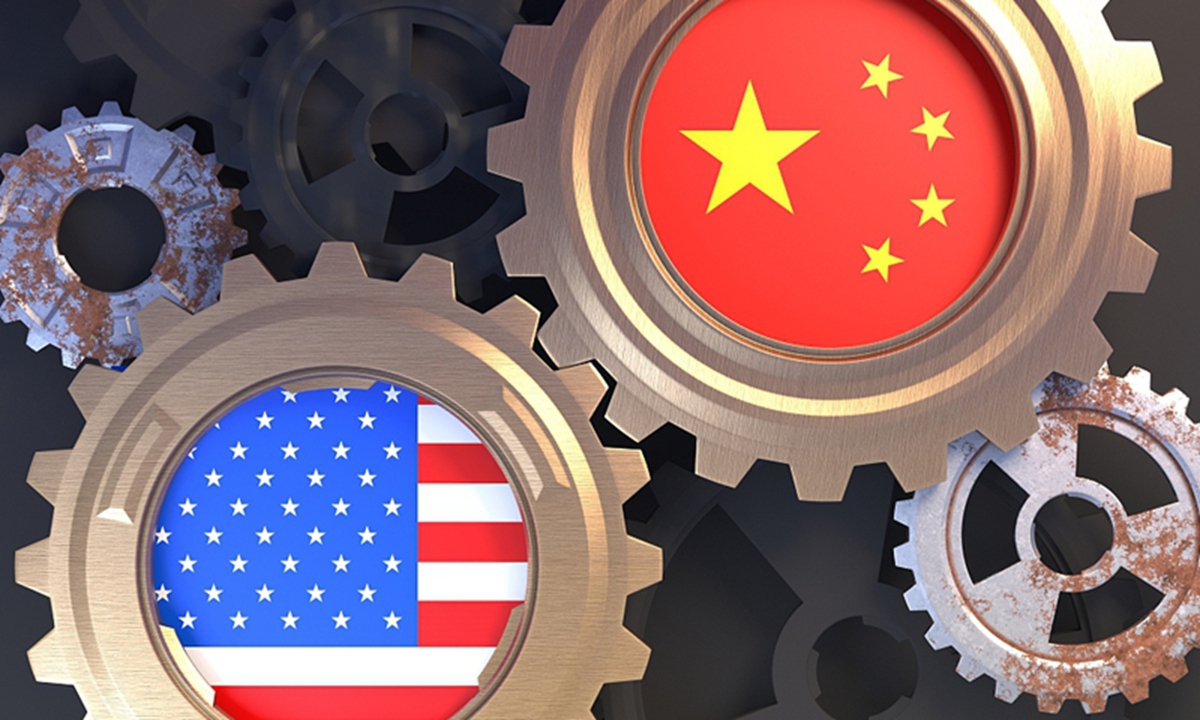
File photo: China US
The scientific and technological exchanges between China and the US are "not at a low point," and global universities will continue to increase personnel exchanges with China, according to officials from the University of Chicago.
Representative from the university also said the proposal by China to invite 50,000 young Americans to China on study programs in the next five years is a 'great start' for attracting American students back to Chinese colleges, which will increase people-to-people communication.
"It was relatively difficult for people to meet face to face between China and the US in the last five years, and I think that does have an impact on our ability to collaborate. But today our academics, our students and our faculty are very eager to return to China and rebuild those ties and look for opportunities for mutual cooperation," Katie Hrinyak, Associate Vice President, Global Initiatives and Strategy at the Chicago University told the Global Times in a recent interview.
Hrinyak said that in this fall the university will have 26 students studying at the Beijing center, the first group of American students returning to China since 2019.
"We have a long history of exchange and collaboration across all disciplines with China and we've had many important relationships here, including with academic collaborators but also with alumni, parents, students and friends. We continue to welcome Chinese students to our campus and we continue to look for opportunities to bring our students here. Our Beijing Center and Hong Kong Campus, established in 2010 and 2018 respectively, have clear missions in fostering international engagement. They not only amplify the University of Chicago's global influence, but also serve as a strong signal of our commitment to deeper international cooperation, Hrinyak added.
Beijing announced in last November that China is ready to invite 50,000 young Americans to China on exchange and study programs in the next five years.
In March this year, 24 students from Lincoln High School and Steilacoom High School in the state of Washington, the US, embarked on an 11-day visit to China.
The Chicago University supports its students' career aspirations by facilitating short-term visits or summer programs in China for those seeking job opportunities. The programs offer exposure to Chinese industries through interactions with local businesses and alumni in China. The initiative to bring American students to China is a great start, she said, adding that starting with students is very important for "they are going to be our future."
"There is certainly a desire from US students to come back to China to reengage, and there's a huge pent-up demand for scholars and hospital administrators to come to Chicago and we engage in different aspects of medicine," said Michael Millis, Faculty Director, University of Chicago Center in Beijing.
However, they admitted that level of engagement between China and the US is not as frequent ad before, which posts challenges for the personnel exchange.
"In the past before the pandemic, there was a direct flight from Chicago to Beijing, but currently I still need to transfer in San Francisco," Hrinyak said.
The scientific and technological exchanges between China and the US are "not in a low point," and the low point was a couple of years ago when essentially there was no travel, no exchanges of anything between US and China, Millis added.
But there are some barriers, such as shortage of funding and flights that make momentum harder than before, Millis said.
The exchanges between the two countries are getting more frequently now. Airlines from China and the US are on a stable path to increase flights, recording the biggest jump since the outbreak of the pandemic, amid recent efforts by the Chinese and US governments to increase flights.
Starting on March 31, airlines from China and the US can operate a total of 100 scheduled round trips per week, according to the Civil Aviation Administration of China on February 29.
"There are some real steps taken by them and commitments to try to break down the barriers that we talked about. I'm optimistic towards the future," Millis said.




